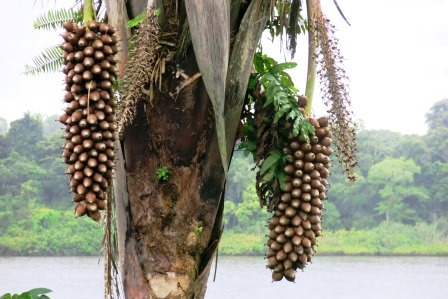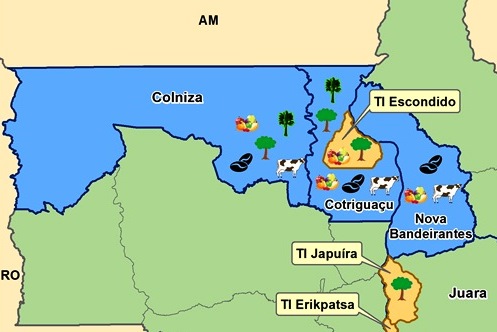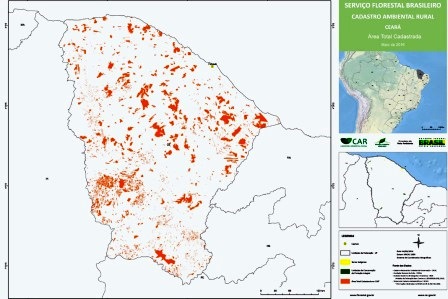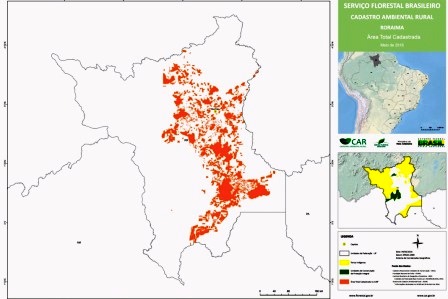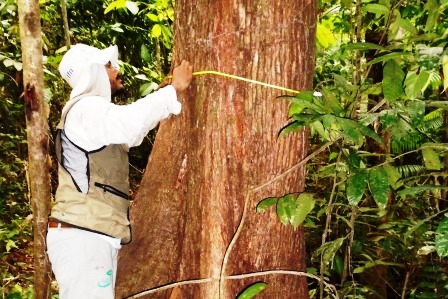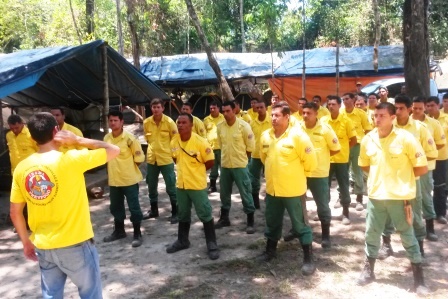CONTEXTUALIZATION
The project aims to reach Amazonian populations whose ways of life have been affected by the operation, construction, or planning of large enterprises. These enterprises have converted their areas of influence into regions of social and environmental pressure, creating a strong demand from families for support in developing sustainable development alternatives. These families include indigenous peoples, fishing communities, riverside dwellers, quilombolas, and small-scale farmers, who have historically suffered from predatory expansion in their territories, often leading to socioeconomic vulnerability, rights violations, and the need to relocate from their lands.
ADAI is a nonprofit organization founded in 1993, whose mission is to develop initiatives to support these communities in their pursuit of food and nutritional security and in addressing social inequalities. The organization has extensive experience in implementing social technology projects nationwide.
THE PROJECT
To contribute to the implementation of the Action Plan for Prevention and Control of Deforestation in the Legal Amazon (PPCDAm) and the National Policy on Agroecology and Organic Production (PNAPO), this project will scale up successful territorial protection strategies through sustainable production, which were previously implemented in a project supported by the Amazon Fund, titled Use of Social Technologies for Reducing Deforestation, from 2017 to 2021.
In the project's initial stages, 600 beneficiary families living in 32 municipalities within the area of influence of large enterprises in the states of Pará, Rondônia, Amapá, Tocantins, and Mato Grosso will be selected and mobilized through seven regional coordination hubs in Belém (PA), Marabá (PA), Altamira (PA), Itaituba (PA), Porto Velho (RO), Palmas (TO), and Sinop (MT).
The project is structured into four components.
The first is sustainable agricultural production, with the implementation of 300 Integrated and Sustainable Agroecological Projects (PAIS) equipped with photovoltaic energy systems for water collection and irrigation, a recognized social technology that promotes better quality, greater diversity, and increased quantity of food consumed by beneficiary families. It also reduces production costs, facilitates garden management, and raises awareness among families about the sustainable use of natural resources. Additionally, 200 productive activity strengthening projects will be implemented, including a detailed diagnostic assessment of other economic activities needed in the regions and technical support to help 200 families develop and execute productive projects suited to their specific contexts. In this way, the project offers comprehensive and integrated technical assistance, ensuring the correct implementation of PAIS and complementary activities over three years.
In the second component, the project will establish five nurseries for native tree seedlings, which will be developed and maintained by 100 beneficiary families. Each nursery will have an annual production capacity of 15,000 to 20,000 seedlings. Additionally, 200,000 native trees will be planted by the 600 beneficiary families, considering the characteristics of the soil, climate, and local biodiversity, covering a total of 84 hectares. Beyond continuous technical monitoring from seedling production to planting and tree management, the project will also include monitoring actions, with mapping supported by drones and an application to track progress.
The third component supports training and capacity-building, both for the technical team - so they can provide careful and appropriate support to beneficiary families through field visits and Planning, Monitoring, and Evaluation (PMA) activities - and for the beneficiary families themselves, with technical training and community leadership development. This will be done through local workshops and regional meetings to disseminate information, multiply learning, and foster dialogue between families and local technical teams, as well as seminars for experience exchange. Additionally, activities in schools are planned to raise awareness and train students in project-covered areas on topics such as environmental education, proper disposal of recyclable and non-recyclable waste, appropriate use of organic waste from schools and family properties, and how to produce healthy food in schools and on family farms.
Finally, the fourth component supports communication and sustainability actions, including the production of educational materials, dissemination of activities and results, production and distribution of printed, audiovisual, and digital materials, and the commissioning of studies to explore the future creation of a community fund to benefit this target audience.
INTERVENTION LOGIC
The project falls under the “Sustainable Production” component (1) of the Amazon Fund Logical Framework, contributing to the following direct effects: (1.1) Identification and development of sustainable forest and biodiversity-based economic activities.(1.3) Expansion of managerial and technical capacities for implementing sustainable forest and biodiversity-based economic activities. (1.4) Restoration and economic/conservation-oriented use of deforested and degraded areas through actions such as implementing agroecological production projects and nurseries, planting native tree seedlings, and providing technical training for families living in socially vulnerable areas.


